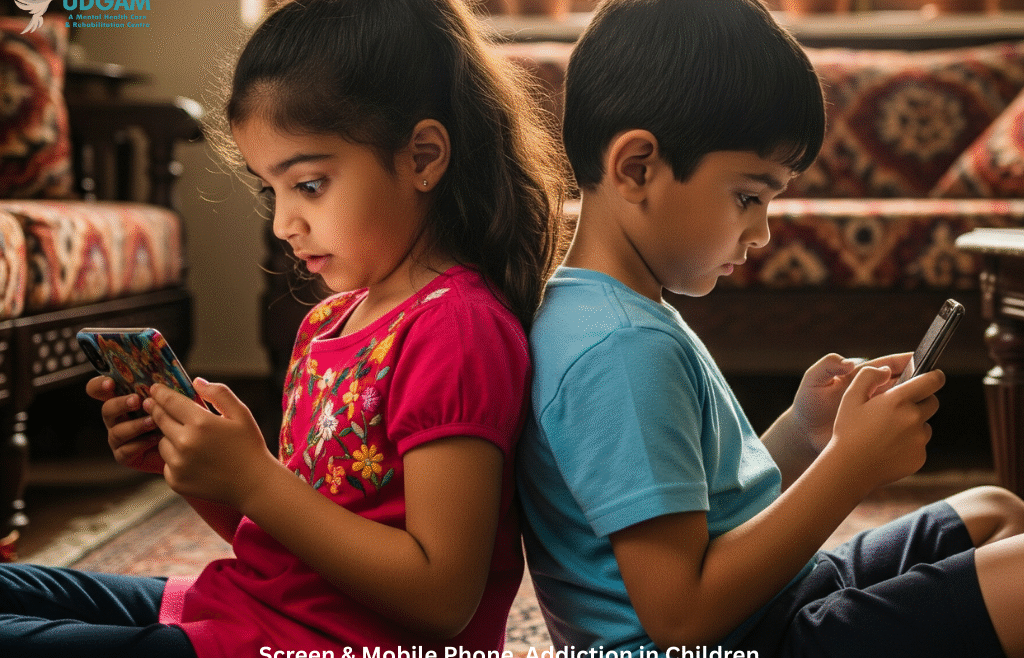
Screen and Mobile Phone Addiction in Children
In 2025, mobile phones and screens are part of almost every child’s daily life. From online classes and gaming to chatting with friends and watching short videos, digital devices are shaping how children learn, play, and communicate. While technology offers many benefits, excessive use has led to a rising problem—screen and mobile phone addiction. This growing concern is impacting children’s mental health, emotional well-being, and social development worldwide. While “screen time” used to refer to TV and video games, it now includes mobile-based social media, AI-powered gaming, streaming platforms, and instant messaging. These digital tools are designed to capture and hold attention, making it harder for children to put their devices down.
What is Screen and Mobile Phone Addiction?
Screen and mobile phone addiction refers to the compulsive and uncontrolled use of devices, often leading to neglect of other important activities such as studying, playing outdoors, and socializing face-to-face. Unlike casual use, addiction involves a dependency where a child feels restless, irritable, or anxious without their device.
Signs of Screen and Mobile Phone Addiction
Parents and teachers should look for warning signs such as:
- Irritability or mood swings when devices are taken away.
- Loss of interest in outdoor activities or hobbies.
- Declining academic performance due to distraction.
- Late-night device use, leading to poor sleep quality.
- Physical issues like eye strain, headaches, and neck pain.
- Social withdrawal, preferring screens over friends and family.
Impact on Mental Health
Screen and mobile phone addiction can cause:
- Anxiety and Depression – Constant exposure to unrealistic social media content can harm self-esteem.
- Poor Attention Span – Fast-paced content reduces a child’s ability to concentrate for long periods.
- Sleep Problems – Blue light from screens delays sleep, affecting mood and memory.
- Increased Aggression – Violent or overstimulating games can influence behavior.
- Social Isolation – Children may struggle with real-world communication skills.
Healthy Screen Time Recommendations
According to global child health guidelines:
- Toddlers (under 2 years): No screen time, except for video calls.
- Ages 2–5: Maximum 1 hour of quality screen time daily.
- Ages 6–12: Maximum 1–2 hours of recreational screen time daily.
- Teenagers: Screen use should be balanced with offline activities and sleep.
How Udgam Mental Health Care Can Help
At Udgam Mental Health Care & Rehabilitation Centre, we specialize in identifying and managing screen and mobile phone addiction in children. Our services include:
- Child Psychiatry Consultations for detailed assessment and diagnosis.
- Counselling and Behaviour Therapy to develop healthy coping skills.
- Occupational Therapy for improving focus, sensory regulation, and social interaction.
- Speech Therapy and Special Education
- Parental Guidance Sessions to help families create a balanced digital routine.
We believe that with the right guidance, children can enjoy technology without letting it control their lives. For quick help send your message we will get in touch with you soon.




